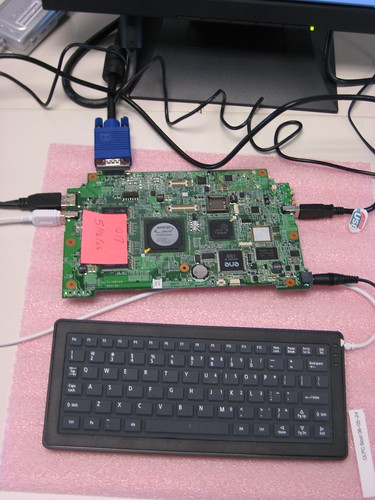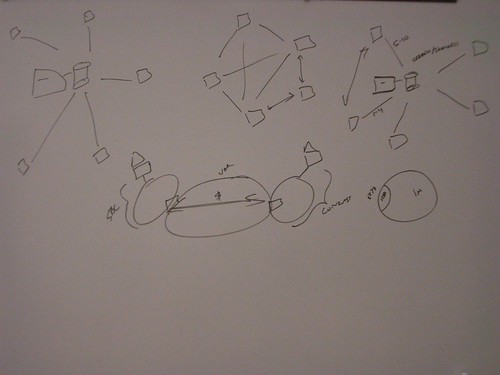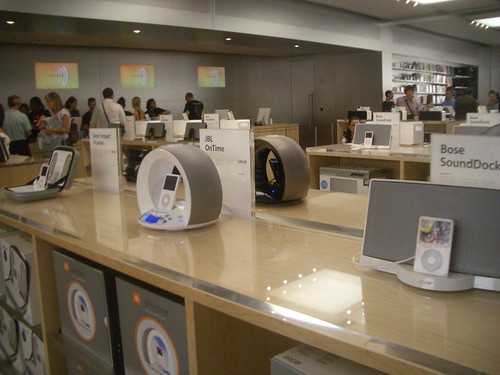November 16, 2006
Free Energy
 Free as in ‘Free of pollutants’, ‘free of politics’, and ‘conducive to human freedom’, not ‘free as in fusion’ or ‘free as in beer’.
Free as in ‘Free of pollutants’, ‘free of politics’, and ‘conducive to human freedom’, not ‘free as in fusion’ or ‘free as in beer’.
On Wednesday night I saw Jeffery Sachs present at the CSSR series. I have seen him talk before, but he is a great orator, so it is a pleasure to listen to reruns. Besides, Gia’s situation continues to deteriorate at such an alarming rate that everytime he speaks I learn how things have gotten worse.
I have been wondering for a while how technology and new media could play a role in saving the world, and I posed this question to Jeff after the talk:
If the situation is as dire and urgent as you depict, people need to start thinking about contingencies in case the traditional forms of political process fail. What lessons can the environmental movement learn from the free software/free culture movements, both tactically and strategically, which faced similarly stiff opposition from the dominant powers of law, policy, and big money?
Tactically, I think the answer is obvious. Advanced communication technologies can play a central role in distributing knowledge, building communities and helping organizations operate more efficiently. Groups like One Northwest have understood this for years, although I think The Earth Institute still has some catching up to do.
Strategically, I stumped myself. What can the environmental movement learn from the “copyleft” approach pioneered by Richard Stallman resulting in the GPL and the Free Software Foundation? In the case of broken copyright and patent systems, they could not wait for the system to heal, so they jury-rigged the system (hacked it) to support their objectives. This framework formed the convention under which the OSI protocols developed, empowering individuals, not states, with the ability to choose to subvert.
One glaring disanalogy in attempting to apply the lessons of the free software movement to the environmental movement is that software, as an information good, does not obey conservation laws and consequently has a marginal cost approaching zero. We are quite a ways off from figuring out exactly how to derive It from Bit, however we may still be able to learn from Stallman’s brilliant maneuver.
Perhaps one of the keys to the success of the free software movement, and now the free culture movement (Creative Commons especially) is how they present choices to individuals, encouraging them to act politically, thereby engaging them in the political questions and discourse. This direct participation in the issue raises awareness and understanding, and for many, becomes the catalyst for idealogical transformation. In turn, these individuals have the will necessary to sustain the pressure required for true reform. If Gore’s movie had one failing it was the lack of ideas for what individuals should do after they left the theater.
Marketers in the corporate sector have understood this idea for a while. They call it creating brand evangelists, best accomplished through participatory engagements (lovemarks?), In a sneaky way this approach adapts the problem we are having with energy back into an information one.
Here is one idea on how we could apply these principles. There are surely others.
Environmental Labeling – simply figure out a set of accounting standards and a symbolic language so that manufactured goods could be labeled with the amount of energy that went into making them. The labeling does not even need to start out as a regulation – in some niche markets it could be seen as a product differentiator and serve as a marketing technique. With these labels in place, some consumers might choose to purchase goods with lower carbon contributions. All that is really missing here is a set of standards and a language of symbols.
Ask yourself the simple question – if you wanted to go on a carbon diet today, or even wanted to determine if your personal carbon demands were increasing, level, or diminishing, how could you find out? How could we develop stabilization wedges for individuals without the kind of transparency that environmental labeling affords? Seriously, I don’t even know if I should be using ceramic cups or plastic ones, rechargeable batteries or disposable ones, etc etc. Transparency can lead to accountability through natural market forces.
As a closing thought, I wonder – can we develop asset of Energy Freedoms analogous to the 4 Software Freedoms?
Free Energy. It’s not just for crackpots anymore.
 Filed by jonah at 12:04 pm under earth,ethics
Filed by jonah at 12:04 pm under earth,ethics
 4 Comments
4 Comments


 Well, midterms have come and gone, and somehow I managed to complete my two papers on time, somewhere between San Francisco and
Well, midterms have come and gone, and somehow I managed to complete my two papers on time, somewhere between San Francisco and 


 I had an interesting conversation with Brian Taptich, the VP of Business Development at
I had an interesting conversation with Brian Taptich, the VP of Business Development at  I attended
I attended  Over Memorial Day weekend I attended Fleet week, and made a few new friends. They happen to be robots, of the autonomous flying variety.
Over Memorial Day weekend I attended Fleet week, and made a few new friends. They happen to be robots, of the autonomous flying variety. A recent visit to the new
A recent visit to the new 